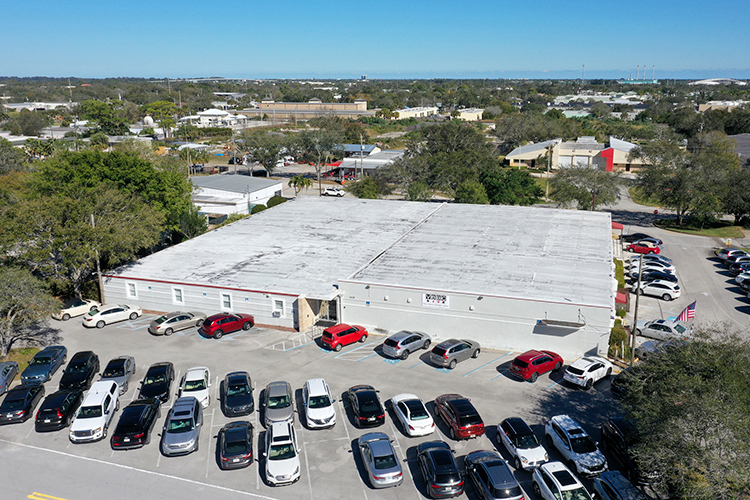
The Vero Beach Bridge Club, a 63-year-old institution that has made Vero one of the best-known cities in the bridge world, has decided to try to sell part of its building across the street from Crestlawn Cemetery.
The decision was made this past week by the 700-member club’s new Board of Directors, now headed by President Denis Conlon, a retired business executive from Philadelphia, who had previously served two terms as board president prior to the Covid pandemic.
Covid has played havoc with the game of bridge all over the country and the world, and has seriously depressed attendance at brick-and-mortar bridge clubs – including the one in Vero – as well as tournaments. The rise of online bridge during the pandemic has added to the challenge.
“We don’t want to be one of the many clubs that will not survive,” Conlon said in reference to the fact that almost half the clubs registered with the American Contract Bridge League (ACBL) before the pandemic have not reopened and probably never will.
“We are not in any danger of closing. This move is designed to assure our future for years to come,” Conlon said.
In a message to the membership, Conlon said the club at present is using less than half of its 20,000-square-foot space and will try to sell the north half of the building located at 1520 14th Ave.
The club would keep the south side of the building, with the main playing area, the men’s and women’s bathrooms and the kitchen, plus sufficient parking to accommodate all interested players.
“A new owner for the north side would do their own improvements,” Conlon said. “Let’s hope the real estate market stays hot and we achieve a high-end sale that will help assure our future for years to come.”
The bridge club moved from rented space to its present location in 1995, and until the Covid pandemic hit and forced the facility to temporarily close in March of 2020, the club had steadily grown every year until it had become the fourth largest in the country by table count.
The club still carries a small mortgage on the building because of an expensive roof repair several years ago with serious cost overruns.
Coincidentally, the bridge club also hired two new managers at the beginning of the year, the married couple of George and Jan Weber, who moved here at the beginning of the pandemic from North Jersey, where they ran bridge clubs and directed games at some of the biggest clubs in the country.
The Webers are tasked with trying to increase game attendance with new imaginative game formats and by recruiting new members through intensive education programs to teach bridge to new and existing residents.
Even in the club’s heyday, when it might draw 75 tables of bridge in a single day in the high winter season, the club never used all of the space in the building. An unused storage space – part of the building that will go up for sale – still has some old bowling equipment from the days when the facility housed the former Diamond Lanes bowling alley.
The bridge club recently launched a one-time fundraising drive with members, which Conlon said is ongoing and has been very successful, getting 20 percent of its members to make contributions. But Conlon said the sale of the unused space was still necessary to reduce operating costs and put the club on a solid financial footing.
The club does not have a specific target figure in mind for the sale of half the building, but Conlon noted in his message to the membership that a smaller building in the area recently sold for $200 per square foot. The Board of Directors will still have to approve any final contract.
Rumors had been swirling for some time that the club was considering the sale of all or part of its building, and the club had also offered some space to other tenants, like Mah Jongg game directors, but those feelers did not lead anywhere.
The Conlon announcement ends that speculation and sets the record straight as to what the club will and will not do – it will stay right where it is and has been for the past 28 years.



